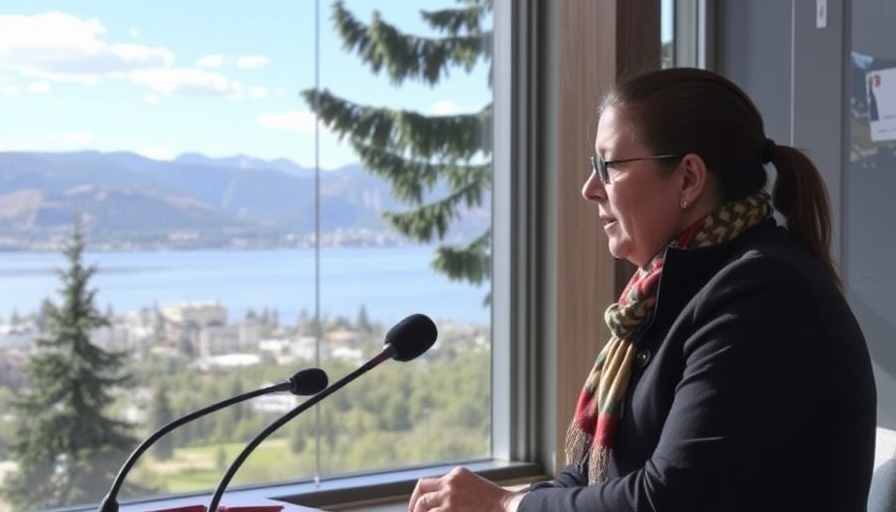
A Response to Local Leadership
Community engagement and leadership are critical in creating a dialogue about Indigenous sovereignty, especially in regions like the Okanagan Valley where such issues are of paramount importance. Recently, the Board of Education of Central Okanagan Public Schools (SD23) expressed their unwavering support for Indigenous rights in response to statements made by local MLA Tara Armstrong and two independent BC MLAs. These comments rebuffed claims to sovereignty made by numerous Indigenous groups in the area, stirring significant discussion among residents and leaders alike.
Understanding Indigenous Sovereignty
Indigenous sovereignty refers to the inherent rights of Indigenous peoples to govern themselves, encompassing their cultural, political, and social governance. The Board of Education emphasized that to ignore these claims is to turn a blind eye to the over 200 distinct Indigenous communities represented within British Columbia. This complex web of relationships and the historical context surrounding reconciliation calls for a respectful recognition of First Nations as the traditional stewards of their lands. The Penticton Indian Band, supported by the syilx Okanagan Nation Chiefs Executive Council, has been vocal in asserting that true reconciliation cannot happen without acknowledging and respecting their sovereignty.
The Role of Education in Reconciliation
Central to reconciliation initiatives, the education system has a responsibility to foster an environment that promotes understanding and inclusivity. The Central Okanagan school district, home to over 3,200 Indigenous students, is not just an academic institution but a community center where critical conversations about rights, history, and identity unfold.
In their statement, the school board acknowledged a shared history marred by colonialism that has oppressed Indigenous Peoples. Recognizing this history and actively addressing it is key to building foundation stones for a more just future in educational institutions. The board’s commitment to creating a safe learning environment serves as an encouragement for continued dialogue and awareness about First Nations rights among students and the community.
Community Impact and Personal Stories
The local reaction to the MLA’s comments has sparked personal stories from residents who understand the deep-rooted connections between the land and its Indigenous peoples. For many, learning about the diverse histories of the area's Indigenous communities brings forth a sense of pride as well as a call to action to engage actively in reconciliation. By participating in local events or educating themselves on the subjects of Indigenous rights and history, homeowners and residents in the Okanagan are exploring ways to contribute positively to their community's growth.
Looking Ahead: Bridging Divides
With a growing understanding of the nuances surrounding sovereignty issues, local leadership has a unique opportunity to bridge the divides that have historically fostered misunderstandings. The school board, alongside local governments, can work towards establishing inclusive frameworks that respect Indigenous governance. As discussions continue and local advocacy groups mobilize, the hope is for everyone in the community to move towards a future that respects both the rights of Indigenous peoples and the voices of all residents.
Taking Action: What Can You Do?
As community members, there are many ways for residents and homeowners in the Okanagan to engage deeper with local issues regarding Indigenous sovereignty. Engaging with local Indigenous groups, attending community forums, and advocating for educational programs that highlight Indigenous cultures are powerful steps toward fostering awareness and understanding. Knowledge is a vital tool—by seeking out information and supporting local initiatives, homeowners can contribute to building a stronger, more inclusive community.
Understanding the intricacies of Indigenous sovereignty and education’s role in reconciliation is instrumental in shaping the narrative of a community striving for inclusiveness and respect. By advocating for Indigenous rights while acknowledging historical contexts, all community members have a stake in this dialogue, reinforcing the bonds of humanity and shared responsibility.
 Add Row
Add Row  Add
Add 




 Add Row
Add Row  Add
Add 

Write A Comment